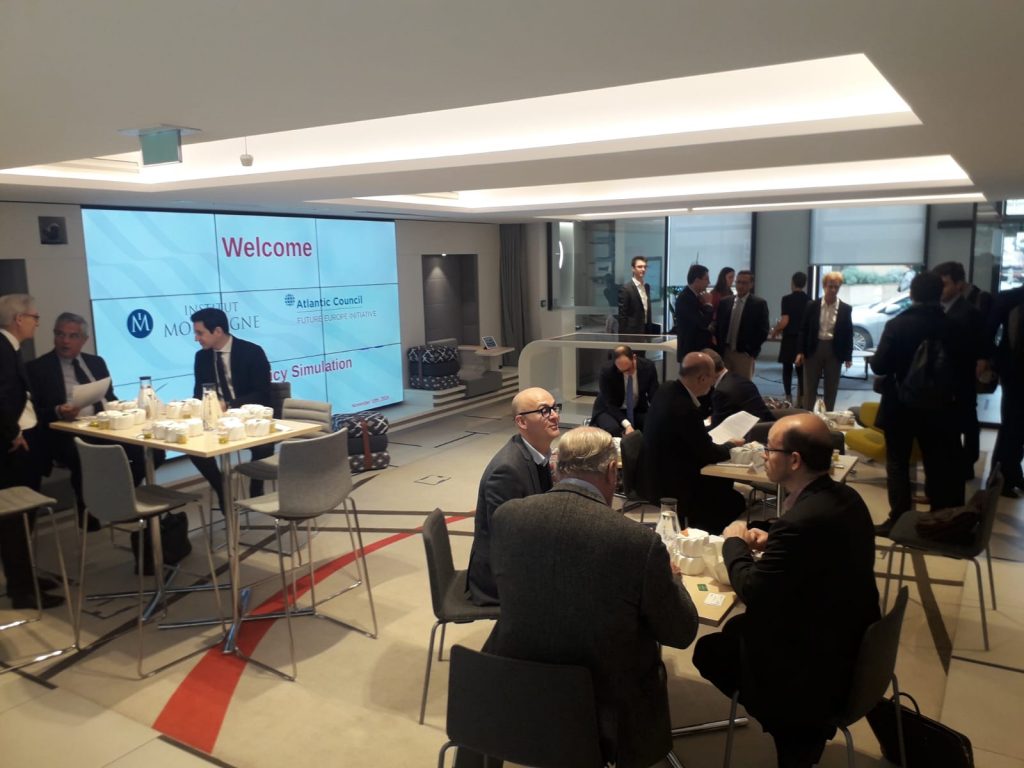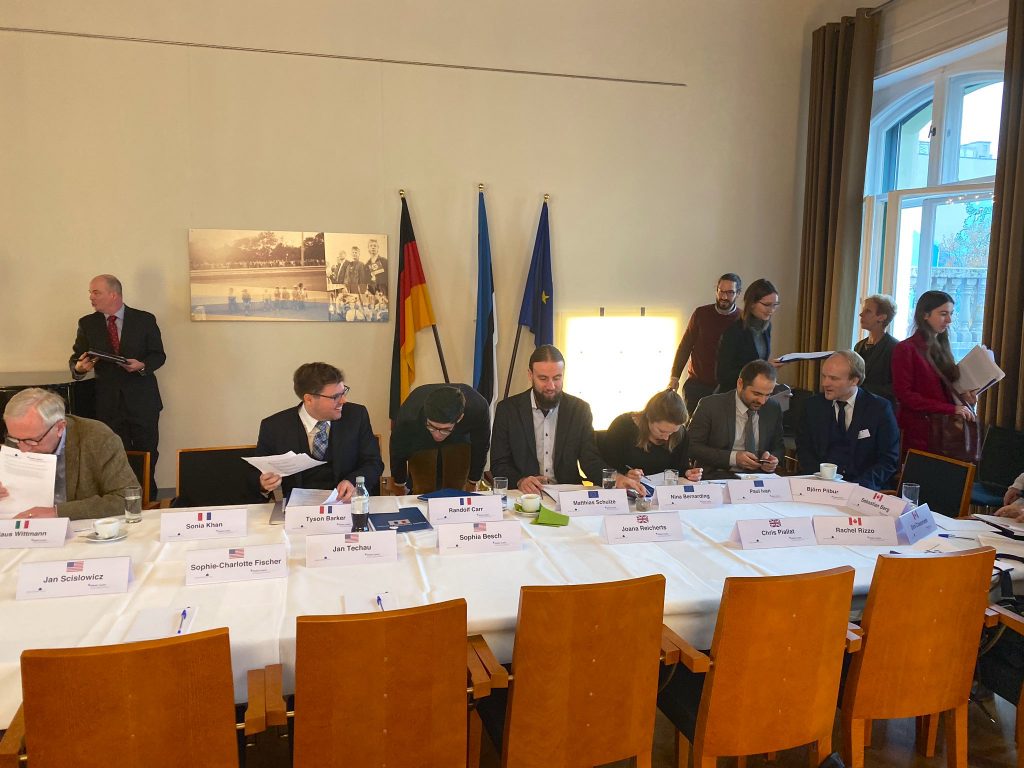On Tuesday, November 19, the Atlantic Council’s Transatlantic Digital Marketplace Initiative organized a running of its Digital Policy simulation in Paris. This was co-organized with the Institut Montaigne, and hosted at Linedata Services. Institut Montaigne recruited about 20 players, a mix of tech and cybersecurity experts and national security analysts.
On Thursday, November 21, the Council organized another running of its simulation, this time in Berlin. This version was co-organized with Aspen Germany and hosted by the Estonian embassy. Aspen recruited about 30 players, mostly foreign policy analysts with a few tech policy experts and entrepreneurs.
The main goal of the exercise was to raise awareness among different communities of policy-makers and private sector decision makers of the importance in relations between the United States and the EU, even during a national security emergency. More specifically, we wanted participants to consider:
- The extent of US-European cooperation in fighting terrorism, and the challenges faced by that cooperation, including regulatory and legal limits, as well as new issues such as e-evidence;
- The threat of cyberattacks and the mechanisms and institutions (or the lack thereof) that allow the US and Europe to collaborate in countering attacks on critical infrastructure;
- The scope and increasing importance of digitalization in the transatlantic economy (and an understanding of the importance of the bilateral economic relationship), with special attention to data flows and privacy issues (including Privacy Shield);
- An understanding of the conflicting pressures of preserving privacy, working with law enforcement, and supporting transatlantic businesses, and of how this debate plays out in Europe and the United States;
- Perceived conflicts between freedom of expression and regulated content, even if those regulations are aimed at protecting society; and
- An awareness of the distinct roles of government and of companies when facing a national security crisis, and the need for both to work together more effectively.
The simulations in Paris and Berlin followed three successful runs in Washington, DC. The Transatlantic Digital Marketplace Initiative plans to continue to run the simulation for new audiences and adapt it to the ever-changing transatlantic digital landscape.


